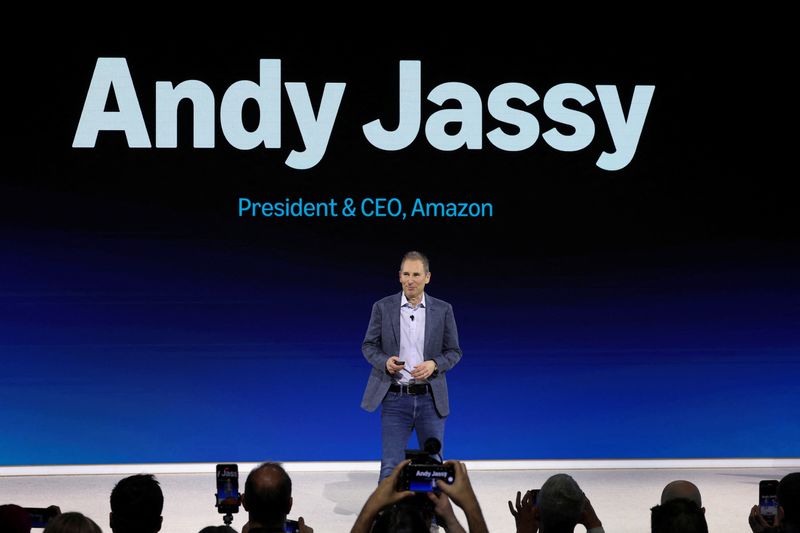By Greg Bensinger and Deborah Mary Sophia
(Reuters) – Amazon chief executive Andy Jassy on Thursday justified the company’s billions of dollars in outlays for artificial intelligence development, saying the investment was necessary to remain competitive.
“If your mission is to make customers’ lives better and easier every day, and you believe every customer experience will be reinvented by AI, you’re going to invest deeply and broadly in AI,” Jassy wrote in his letter to shareholders, an annual rite of passage for the top boss at the Seattle retailer.
He said substantial capital investment is necessary to obtain AI chips and build data centers.
“Our customers, shareholders, and business will be well-served by our investing aggressively now,” he said.
Like rivals, Amazon is investing heavily in generative AI, including releasing a variety of chatbots serving sellers, businesses and consumers. Last month, after multiple delays and billions of dollars of investment, it unveiled an AI-infused revamp of its Alexa voice assistant.
Amazon has also invested about $8 billion into AI startup Anthropic and has incorporated its Claude software into what it is calling Alexa+.
Jassy’s comments on Amazon’s AI spending echo what Alphabet CEO Sundar Pichai said on Wednesday at a Google Cloud event.
Pichai reiterated his company’s plans to spend some $75 billion this year to build out data center capacity and defended Alphabet’s massive jump in capital expenditure, saying “the opportunity with AI is as big as it gets.”
TARIFF NOISE HAS NOT HURT DEMAND, YET
Though the threat of long-term U.S. import tariffs, particularly those targeting goods from China, has roiled global markets in recent days, Jassy made no mention of the levies in his letter.
He later said in a CNBC interview that Amazon has pulled forward some inventory orders and is working to keep prices low, and added the company was seeing no meaningful impact on demand for discretionary items from the noise around tariffs.
“People have not stopped buying. There’s certain categories where we do see a little bit of people buying ahead, but it’s hard to know if it’s just an anomaly … we haven’t seen any change in consumer behavior in a meaningful way yet.”
Retail giant Walmart on Wednesday also pledged to keep prices low, even as it noted volatility in shopping behaviors starting February, in part due to tariff uncertainty.
Amazon shares have slid by 13% this year, less than some of its rivals including Alphabet and Apple but sharper than Microsoft’s 7% through Wednesday.
Story Continues

